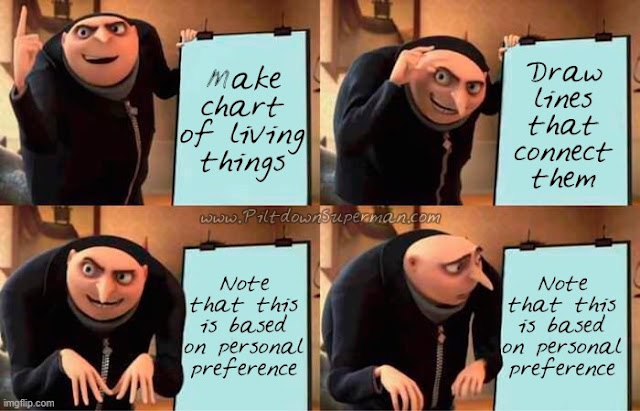Ordinary People Can Challenge Evolution
With the tenth annual Question Evolution Day less than three months away, what follows is a useful article to get people thinking. It is not long or complex. When people think it is indecent to question universal common descent evolution, we have some points to raise and questions to ask.
If we have the unmitigated gall to doubt Darwin, fundamentalist evolutionists often say, "Are you a scientist? Where did you get your degree?" These are the same sidewinders that say creationists don't do science, and scientists who are creationists are, therefore, not scientists. Note the double standard that defenders of evolutionism that are encountered online seldom have degrees themselves! It's acceptable to promote their views without degrees, but we must have degrees to question them. This is simply bullying and a kind of appeal to authority. It's who they are and what they do.
What really grinds their goats is when we show that we have some knowledge and reasoning skills. (Some of us who are not scientists catch them dealing from the bottom of the deck where logical fallacies are concerned.) While they scoff at the concept of specified complexity (everything has to be functioning properly in an organism or nothing works, nothing makes sense), they can do little more than evosplain it with nonsensical jargon, lines on charts, and weasel words. "Scientists think...it could be...maybe...perhaps...convergent evolution..." and so on explain nothing. They go to great lengths to deny the Creator's work and also deny his rightful place.
It’s one thing to simply draw a line on a paper between two animals’ pictures to express a belief that they’re related, but how can we know for sure? One test offers a hard stop to evolution between basic kinds: all-or-nothing body systems.Body parts integrate into body systems. Each part, and each piece that makes up that part, needs the right shape, size, and strength of material to do its job. That’s why brains aren’t made of enamel but of interconnected nerves.Some body parts can change a little and still allow the system to work. For example, human legs come short and thick or long and thin and every variety in between. But the imaginary process of transforming fish fins into human legs would leave the in-between creature either unable to swim or unable to walk. It would die, as would its evolution. Take enough of a fish’s fins away on its supposed journey to land life, and it loses its ability to track down dinner before it becomes dinner.
To read the rest of this useful article, see "How Can You Refute Evolution?" Also, this eleven-minute video clip is interesting:
